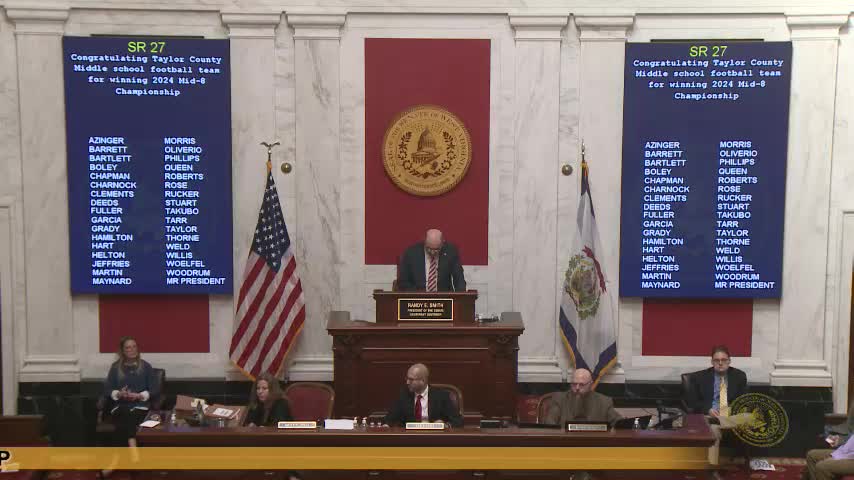Senate passes Veterans Empowerment and Trust Safeguard Act limiting certain fees on benefits claims
Get AI-powered insights, summaries, and transcripts
Subscribe
Summary
On March 12, 2025, the West Virginia Senate passed the engrossed committee substitute for Senate Bill 658, titled the Veterans Empowerment and Trust Safeguard Act, prohibiting certain fee practices for services related to veterans benefits claims and aligning state rules with federal fee structure requirements.
CHARLESTON, W.Va. — The West Virginia Senate on March 12 passed the engrossed committee substitute for Senate Bill 658, creating the Veterans Empowerment and Trust Safeguard Act and prohibiting certain fees for services related to veterans benefits claims.
Senator from Brook, explaining the committee substitute on the Senate floor, said the measure “creates the Veterans Empowerment and Trust Safeguard Act, which prohibits the charging of certain fees, for services related to veterans benefits claims.” The sponsor told colleagues the measure adheres to federal law governing fee structures for filing veterans’ compensation claims.
The bill specifies that the state measure follows federal fee rules and does not apply to accredited individuals — including attorneys and accredited agents — or recognized veterans service organizations that currently file on behalf of veterans. As the Senate sponsor put it, the bill “does not prohibit a private entity from filing a claim on behalf of a veteran,” but such entities must comply with federal accreditation and fee rules before charging for those services.
Senior senator from the Thirteenth spoke in support and noted that Toby Haney, senior vice commander of the VFW, had brought the issue to lawmakers’ attention. “He asked that we pursue legislation like this to protect veterans while pursuing their benefits,” the senator said.
After floor discussion, the Senate conducted a roll-call/machine vote and the clerk announced the result was sufficient to pass the bill; the presiding officer declared the bill passed. The clerk was instructed to communicate the action to the House.
What the bill does and what it does not: sponsors said the measure prevents certain fee-taking practices for veterans benefits claims and aligns West Virginia law with federal rules for fee accreditation. The Senate record notes the bill does not prevent accredited representatives or veterans service organizations from assisting claimants and does not prohibit private entities from filing claims so long as they meet federal accreditation and fee requirements.
The bill will be transmitted to the House of Delegates for its consideration.
